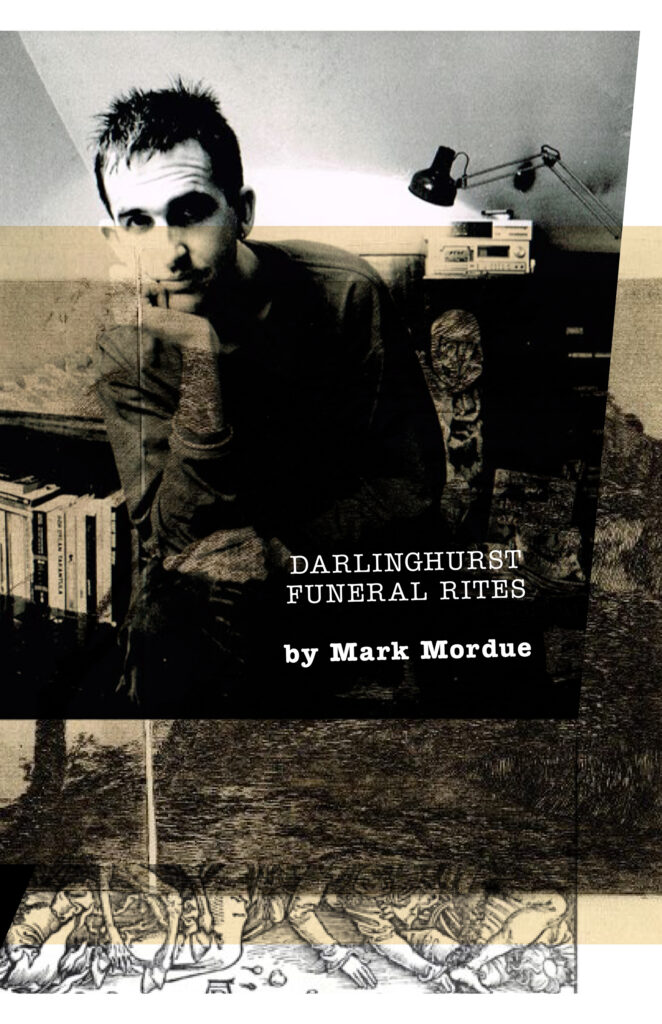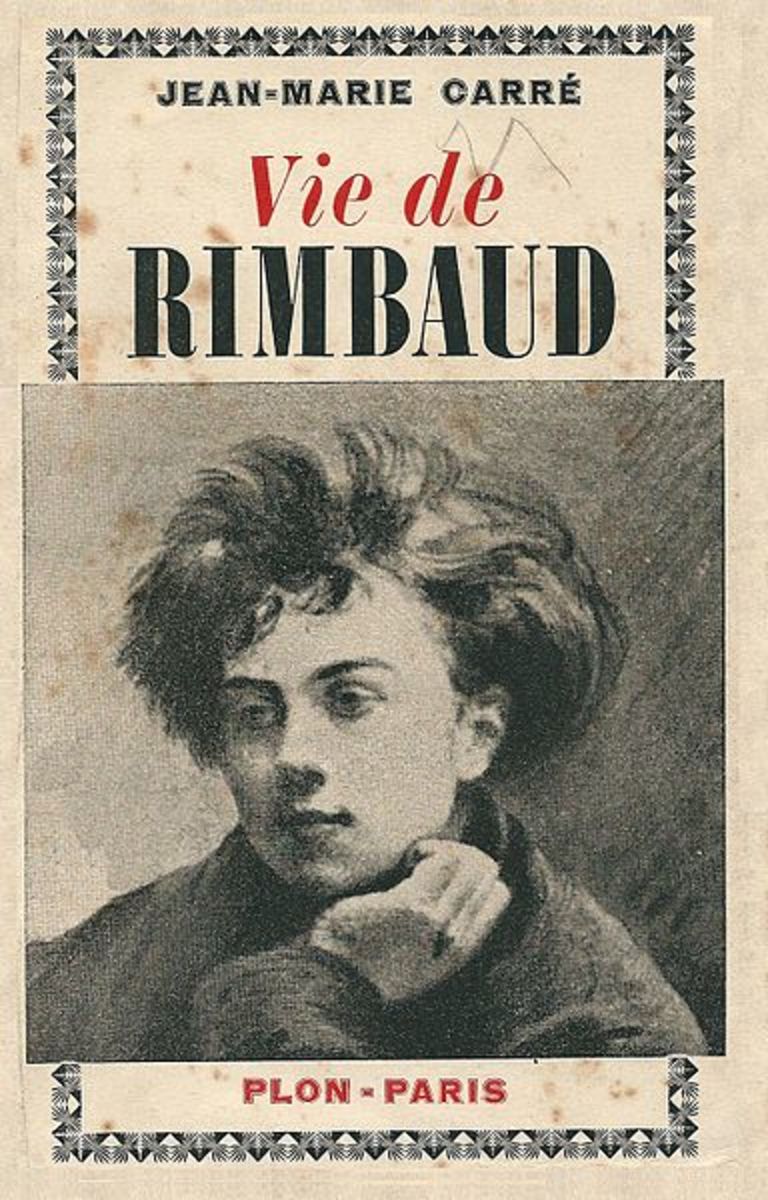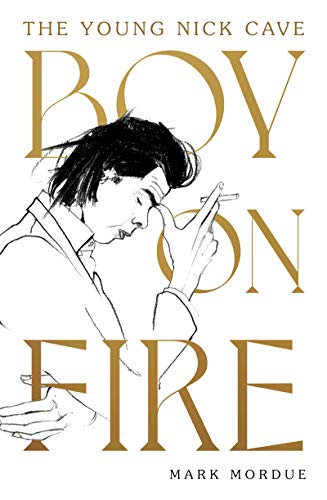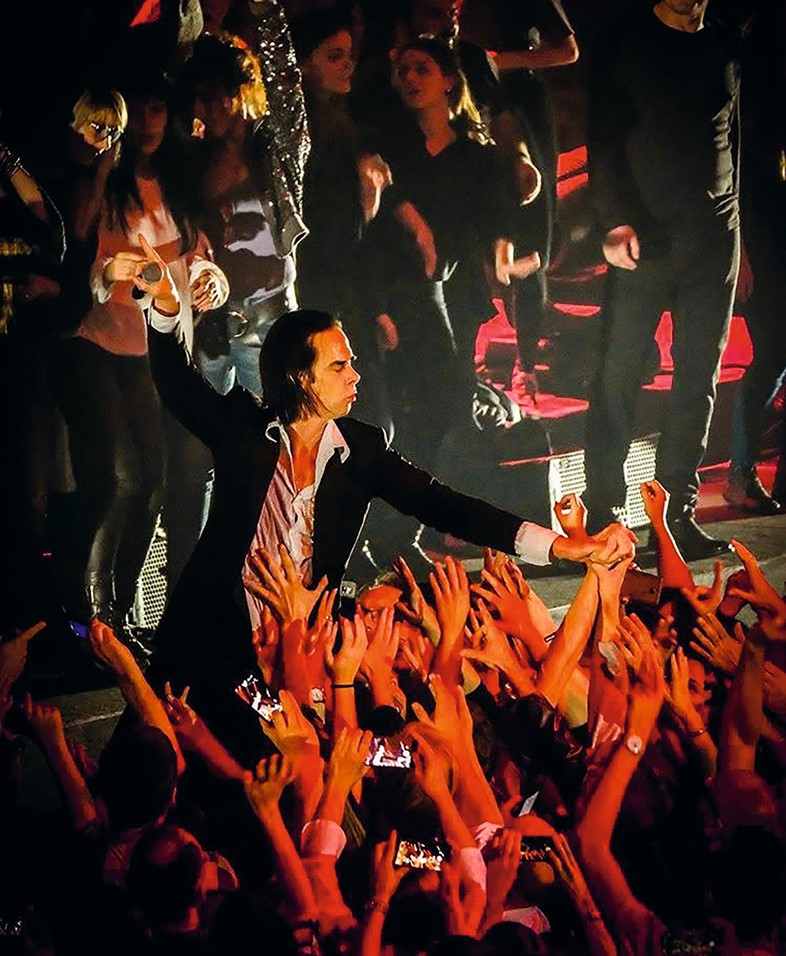By Mark Mordue
When I think about rock ‘n’ roll and my life trying to write about it, my trying to get inside rock ‘n’ roll through words and stories, it seems to me all I ever cared about was this thing called “the truth,” or being able to celebrate, activate, animate a moment, good or bad, to put it there on the page — rock ‘n’ roll as a lived experience.
To create a riot or a love story or a sadness or even a divide — the unplugged and distant as much as the switched on, up close and electrical — to remake the event and the encounter; these seemed to me to be the absolute goals.
So that when someone read my “stuff” they might get as shaken up or inspired or confused as I was in relation to these people and songs and places and happenings that were moving me.
Rock ‘n’ roll, yeah.
Not so long ago I was invited to talk to a group of tertiary!degree music students about rock ‘n’ roll writing. In the course of my trying to explain myself, and the alchemy I believe in, their teacher interrupted me and said, “Isn’t it true most rock journalists are just frustrated musicians.”
I’d heard that one a million times before. It’s the kind of statement that pisses you off when you’re a rock journalist. It’s meant to piss you off too, to put you in your place — to let you know your art form is essentially parasitic, second rate, a pastiche based on things you can’t do. I’m sure you know the cliches: “Those who can, do, those who can’t, write about it.” “Action speaks louder than words.” Blah blah blah.
Without thinking too much about it I turned to the music teacher and said, “Maybe that’s true. But then I think most musicians are also just frustrated musicians too.”
Over the years I’ve come to see there are times when there is a struggle between musicians and writers for what you might call the “soul” of rock ‘n’ roll.
Of course writing can’t get at the communal heat, the group energy, the sheer physical decibels of rock ‘n’ roll. But it can work in other ways, in another form, and be just as vital and equal to the feelings and ideas rock ‘n’ roll represents. It can even be better. Sure.
In some ways, it is even possible to turn up the writing, which might be one of the signposts for what rock ‘n’ roll writing is: the volume level of the adjectives, the unhinged energy, the wild connections and amplification of emotions. In forms normally given over to the rationalistic and the analytical — in journalism and criticism — rock ‘n’ roll writing still has a place for love and poetry, for metaphysical associations that really do believe in taking you — along with the writer — that much higher than you might have been before.

Maybe something was sparked during my own early efforts to write poetry, mostly inspired by the lyrics of Marc Bolan of T-Rex. As a budding 13-year-old writer I dreamed off efforts about white lines on mirrors, lounging in jet airplanes and drowning in swimming pools full of lions and naked women. I didn’t really know what it was all about, but it sounded fantastic, and the influence of a drug-indulged, globe-hopping hippie-mystic English pop star definitely had its positive side. I dreamt. Ridiculously, wildly. But I dreamt.
When I was a teenager in the 70s, magazines like RAM (Rock Australia Magazine and the NME (New Musical Express) from England further articulated the sounds and activities, the style and language of a culture completely alternative, or beyond where I was as a suburban boy in Newcastle, New South Wales, Australia.
As much as through the sounds, and of course the lyrics that I studied so carefully, I fell deeper into music because of these magazines and the people who wrote for them. At the NME it was the writings of Paul Morley in particular who first awakened me to the fact a magazine article could have all the grace and intelligence of a fine short story or theatre piece.
In Australia, where I live, Andrew McMillan’s stories in RAM got me interested in Tom Waits and Hunter S. Thompson and Jack Kerouac, which dovetailed, I would discover, with Bob Dylan’s links with the Allen Ginsberg and the whole Beat scene, as well as French poets like Arthur Rimbaud, who, I saw, inspired Van Morrison as well as Dylan, and even someone as punk as Patti Smith.

Much later I realised there was an argument that the 19th-Century Rimbaud was the first true punk, not ’60s American garage bands, not singers like Richard Hell, not Johnny Rotten at all.
By this stage of my teens I was already heavily into Joseph Heller’s Catch 22 and Something Happened; into the twists and shouts of Hamlet (surely Shakespeare’s most rock ‘n’ roll play), as well as the comic book existentialism of the Marvel superheroes; into actors like Al Pacino in Dog Day Afternoon and Serpico, and books like Catcher in the Rye (which seemed to inspire all kinds of assassins, including Mark Chapman, the killer of John Lennon), as well as records like On the Beach and Tonight’s the Night , in which Neil Young sang about bad heroin, Charles Manson and, funnily enough, how much rock critics pissed him off (“Walk On”); into Albert Camus (who later inspired The Cure to write “Killing an Arab”), sci-fi books, UFO cover-up conspiracy theories, vampire novels, Elvis Presley movies on midday TV,the cinematic obsession with Americana in most of Bernie Taupin’s lyrics for prime-time Elton John; into David Bowie and how alien and drug-fucked he seemed when they screened the “Cracked Actor” doco on ABC (when he uttered the words “there’s a fly in my milk” as he sat staring into a carton, clearly out of it, in the back of a limousine, he may as well been speaking some revolutionary form of Sanskrit to me) and how weirdly he danced to “Golden Years” on “Soul Train.”

It all made sense to me; it all felt connected.
You could say by the time punk arrived, and what was later called “New Wave,” I was
ripe for further development. Punk’s DIY spirit and the intellectual, arty pretensions of the New Wave — along with the rock magazines I was reading — fed a sense that I could actually get involved.
In magazine interviews this somewhat disparate movement’s main stars, figures like Johnny Rotten (Sex Pistols), Paul Weller (Jam) Joe Strummer (The Clash) and Howard Devoto (The Buzzcocks) in the UK, and Chris Bailey (The Saints), Nick Cave (The Birthday Party) and Sean Kelly (Models) here, spoke of influences that opened up a cultural history I’d never known of, often dark and certainly obscure. The Velvet Gnderground, the MC5 and The New York Dolls, Marxist politics, German expressionism film and art, William Faulkner, W.B. Yeats, Celine, reggae and French cultural theory all came tumbling through the hole they punched in my life.
Maybe there was also something in the fundamental ethos that this music wasn’t entirely above or beyond me — in the brute democracies of punk, and the art-house exoticism and experimentation, even the uncomfortable superiority of New Wave that appealed to me as an adolescent boy. Whatever the answer to that mystery, I was launched as a writer.

I think there is a vaguely religious quality to all this, that writing about music and writing inspired by music leads to songs of innocence and experience on the page as much as between the ears. It’s a devotional act, a real love thing, which is why it can be an angry and hateful and messy thing too. I often think the best rock ‘n’ roll magazines and writers have a reach!for!the!stars touch of anarchy about them, a sense of risk that inevitably involves failure as much as moments of white!light wonder. It depresses me to look at most rock ‘n’ roll magazines today by comparison: the Pepsi Cola cool they promote; the tame and stylized rebellion; the often dull, hypey and self-satisfied writing. The awful truth in today’s over-designed media world is that if Hunter S. Thompson or Lester Bangs turned up today at the doors of Rolling Stone writing at their peak of their powers, they’d be turned away because they did not fit the format. Sorry guys, too passionate, too wild, too weird. I hope the zine scene and the Internet are the places where that honesty and talent can find a better voice.
An American rock critic like Lester Bangs understood the need for this energy, in columns and interviews and reviews, that rampaged through his relationship with rock ‘n’ roll and its music stars. Perhaps better than anyone, Bangs at his best (and Bangs was not always at his best) could evoke the actual feelings of listening to music, the way you heard it, in words. Alternatively, an English writer as fine as Nick Kent exuded a more elegant discipline in stories largely fascinated with the self_destructive and exiling impulses that would also exert their own pull upon him. Bangs would eventually die of his own excessive lifestyle and later be immortalised in “Almost Famous” as the mentor to the young lead character (“People like us aren’t cool”) while Nick Kent would find himself, for a brief moment, the singer of an unknown group called the Sex Pistols before Johnny Rotten got the &ob and he was unceremoniously booted out. That a sadness, a hurt, plagues both Bangs and Kent — who seems to have faded off the scene — for all their talent does not detract from just how good they are as writers. Nor does the fact that they tried to sing, to play. They just wanted to live it all.
Funnily enough a lot of the contemporary rock ‘n’ roll scene seems to be looking towards the literary world to enliven it. At events in London, performance poets like John Cooper Clarke and Linton Kwesi Johnson, both of whom emerged in the wake of punk and dub, have ranked alongside Will Self, Zadie Smith and Jarvis Cocker of Pulp in evenings of musical and literary dialogue in the past few years. Poetry, it seems, is becoming hip, cool.
This bridge-building between writers and musicians is hardly new. It’s how Patti Smith emerged as an artist. It’s what gave Dylan so much artistic credibility. But certainly since the advent of rock ‘n’ roll one can see an ongoing and developing body of work that details something larger, which we might call the cultural history of our rock ‘n’ roll lives, from On the Road to Fear and Loathing in Las Vegas to One Flew Over the Cuckoo’s Nest, Less Than Zero, The Ice Storm, Twelve, The Fight Club, He Died With a Felafel In His Hand… the list, like the beat, goes on!
So when it finally comes down to it, I sincerely believe French poetry and the Beats are just as important to modern rock ‘n’ roll as the blues and Woody Guthrie. The same way we couldn’t have had the outburst of New Journalism in the 1960s and the radical subjectivity of so much literary non-fiction today without rock ‘n’ roll opening people’s minds alongside it.
Artists like Brett Whiteley and Tracey Emin, poets like Allen Ginsberg and Robert Adamson, rock journalists like Lester Bangs and Nick Kent, are just as much a part of rock ‘n’ roll as Lou Reed or the Rolling Stones or even Eminem. That’s the truly wild and mutable thing about rock ‘n’ roll — it’s an energy that can’t be held and chained up or robbed of its magic and dissent. It begs in the end for trouble and divinity and sex and whatever ruptures we can celebrate it with. It’s escaped into our entire culture, our dreams, our unconscious life, and a musician or even a crap magazine doesn’t own it,any more than a couple speeding out of town to the sounds of You Am I, M Ward and Kings of Leon on the radio.
Feature Image Courtesy of Another Man.

TODAY’S FEATURED BOOKS



